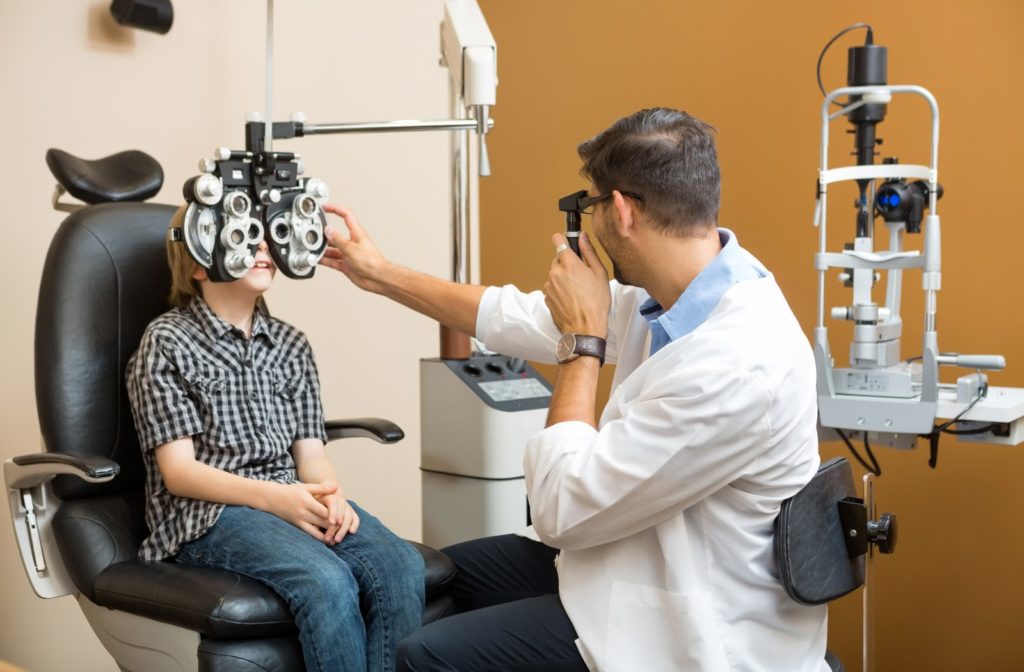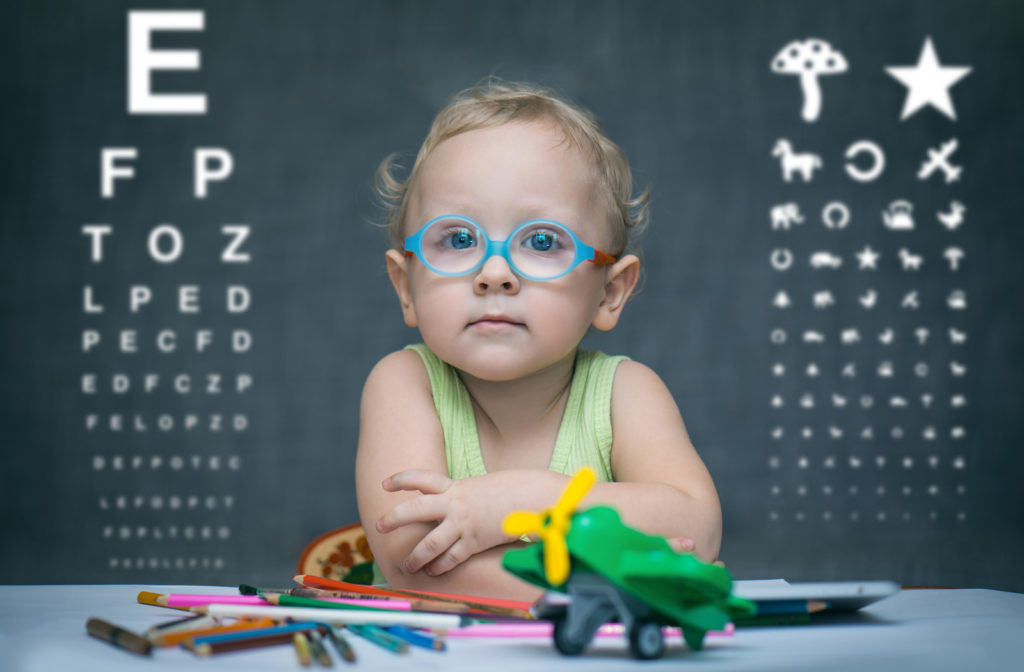Many eye problems can develop during childhood, making regular eye exams essential for protecting your child’s vision. When thinking of taking your child for an eye exam, when should they have their first?
Continue reading to learn more about children’s eye exams, including why they’re essential and when your child should have their first exam.
The Importance of Eye Exams
Children go through countless changes as they grow up, including their eyes. As your child’s eyes develop, there is always the risk of eye conditions. Consistent eye exams are the most effective way to protect your child’s eyesight.
While eye conditions can develop at any age, many occur in childhood, affecting your child’s eye health and vision.
Eye conditions typically worsen with time, making an early diagnosis vital for preserving your child’s vision. Regular eye exams help your optometrist keep track of any changes in your child’s vision and identify issues before they cause damage.
Having Clear Vision Benefits Your Child’s Development
Besides preventing unnecessary damage, eye exams help your eye doctor diagnose visual problems that can affect your child’s development. Approximately 80% of learning is visual for children, and your child uses many visual skills in everyday life.
An undiagnosed eye condition can affect your child’s development, impacting their school performance, everyday interactions, and overall self-esteem.
As a parent, you must look for signs of a vision problem. Your child may not know something is affecting their vision.
Some common signs of a vision problem include:
- Frequent eye rubbing
- Excessive blinking
- Consistent squinting, covering or closing one eye
- Frequent head tilting
- Headaches or dizziness
- Unexplained performance issues in school
- Trouble maintaining eye contact
When Should Children Have Their First Eye Exam?
Eye exams are important for your child’s health and vision, so you shouldn’t hold off their first exam. Many changes happen to children’s eyes as they grow, and development begins at a young age.
According to the Canadian Association of Optometrists, children should have their first eye exam between 6 to 9 months old. After this initial exam, they should receive regular annual eye exams between ages 2 to 19.
While the Canadian Association of Optometrists recommends this schedule, it serves as a guideline. If your child has vision problems, your optometrist may want to see them more frequently.
What to Expect During Your Child’s First Eye Exam
What happens during your child’s eye exam depends on their age. Your child’s eyes go through many changes as they grow, and your optometrist will tailor their exam to meet their needs. They know how the eye grows and what to look for in each stage of your child’s development.
Their first eye exam should happen between 6 to 9 months old. During this first exam, your eye doctor will check your child’s basic eye health and ensure they’re developing hand-eye coordination and depth perception.
As your child grows, your optometrist will assess different parts of their vision in future exams.
Preschool Age (2–5 Years Old)
Preschool age vision is when your child develops several visual skills as they learn, play, and interact with others. Your optometrist will assess your child’s eye health and vision to determine their ability to see from near and far distances (visual acuity).
Besides testing your child’s visual acuity, your optometrist will assess their binocular vision and look for signs of strabismus (crossed eyes) and amblyopia (lazy eye). These conditions commonly develop in early childhood.

School Age (6–19 Years Old)
After turning 6, your child should have annual eye exams. Several eye conditions typically develop in this age range, including myopia, hyperopia, and astigmatism. Your child will require a comprehensive eye exam to help your optometrist get a complete picture of their eye health and vision.
You can expect the following during your child’s annual eye exams:
- Visual acuity: A test to determine how well your child can see from near & far distances
- Refraction: A refraction test helps determine if your child requires corrective eyewear, such as glasses or contact lenses—this test involves looking through a series of lenses to choose the ones providing the clearest image
- Eye coordination: Your optometrist tests how your child’s eyes focus, move, & work together during a comprehensive eye exam
- Eye health evaluation: An eye health evaluation is crucial during your child’s exam—your optometrist examines the eye’s internal structures & surrounding tissue to look for signs of any problems
Your optometrist will perform additional tests during their comprehensive eye examination if necessary. With how important vision is for your child’s development, ensure you’re booking regular exams to help protect their eyesight.
Is It Time for Your Child’s Next Eye Exam?
Wherever your child is in their development, regular eye exams are vital for their eye health and vision. Even if your child can see fine, they may have an underlying issue affecting them. The best thing you can do for your child’s vision is to visit your optometrist.
Contact your eye doctor if it’s time for an eye exam or your child has symptoms of a vision problem.

